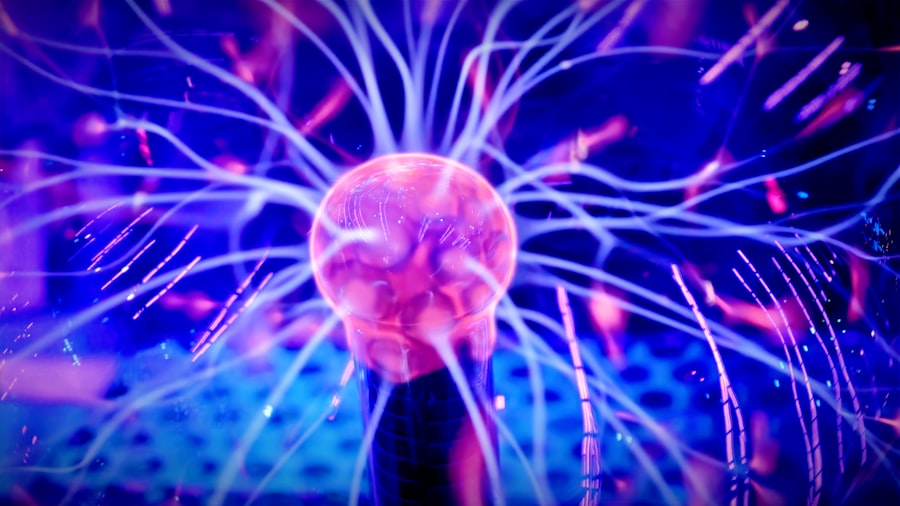The study of consciousness has undergone a remarkable transformation over the centuries, evolving from philosophical musings to a rigorous scientific discipline. Early thinkers, such as Descartes and Kant, grappled with the nature of consciousness, often framing it within metaphysical contexts. Their inquiries laid the groundwork for later explorations, but it was not until the advent of modern psychology and neuroscience that consciousness began to be examined through empirical lenses.
The 20th century marked a significant turning point, as behaviorism initially dominated the field, relegating consciousness to the background. However, as cognitive psychology emerged, researchers began to recognize the importance of subjective experience, leading to a resurgence of interest in understanding consciousness. In recent decades, consciousness science has gained momentum, fueled by advancements in neuroimaging techniques and interdisciplinary collaboration.
Researchers now employ tools such as functional magnetic resonance imaging (fMRI) and electroencephalography (EEG) to investigate the neural correlates of conscious experience. This shift towards a more empirical approach has allowed scientists to explore questions about awareness, perception, and selfhood with unprecedented precision. As a result, consciousness is no longer viewed solely as a philosophical enigma but as a complex phenomenon that can be studied scientifically, bridging the gap between mind and brain.
Key Takeaways
- Consciousness science has evolved from a philosophical and psychological concept to a multidisciplinary field that incorporates neuroscience, psychology, philosophy, and artificial intelligence.
- Technology, such as brain imaging and artificial intelligence, has played a crucial role in advancing consciousness research by providing new tools and methods for studying the human brain and consciousness.
- The mysteries of the human brain and consciousness continue to be explored, with researchers seeking to understand the neural correlates of consciousness and the nature of subjective experience.
- Consciousness science is inherently interdisciplinary, drawing on insights and methods from various fields, including neuroscience, psychology, philosophy, and artificial intelligence.
- Consciousness science has implications for psychology and philosophy, challenging traditional views of the mind and offering new perspectives on the nature of consciousness and subjective experience.
The Role of Technology in Advancing Consciousness Research
Technology has played a pivotal role in advancing the field of consciousness research, providing tools that enable scientists to probe the depths of human experience. Neuroimaging technologies, such as fMRI and PET scans, have revolutionized the way researchers study brain activity associated with conscious states. These imaging techniques allow for real-time observation of brain function, revealing how different regions activate during various cognitive tasks and states of awareness.
As a result, researchers can identify patterns that correlate with specific conscious experiences, shedding light on the intricate relationship between neural processes and subjective awareness. Moreover, advancements in artificial intelligence and machine learning have opened new avenues for understanding consciousness. By analyzing vast datasets of brain activity, AI algorithms can identify subtle patterns that may elude human researchers.
This synergy between technology and consciousness science not only enhances data analysis but also fosters innovative experimental designs. For instance, virtual reality environments can simulate altered states of consciousness, allowing researchers to study phenomena such as out-of-body experiences or altered perceptions in controlled settings. As technology continues to evolve, it promises to deepen our understanding of consciousness and its underlying mechanisms.
Exploring the Mysteries of the Human Brain and Consciousness

The human brain remains one of the most complex structures known to science, and its relationship with consciousness is a subject of ongoing exploration. Neuroscientists have made significant strides in mapping brain regions associated with various aspects of conscious experience, yet many mysteries persist. For instance, the question of how subjective experiences arise from neural activity remains largely unanswered.
While certain brain areas have been linked to specific functions—such as the visual cortex for sight or the prefrontal cortex for decision-making—the precise mechanisms by which these processes culminate in conscious awareness are still being investigated. One intriguing area of research focuses on altered states of consciousness, such as those induced by meditation, psychedelics, or sleep. These states provide unique insights into the nature of consciousness itself.
Studies have shown that meditation can lead to changes in brain connectivity and activity patterns, suggesting that conscious awareness can be modulated through intentional practices. Similarly, research on psychedelics has revealed how these substances can temporarily dissolve the boundaries of self and alter perception, offering a glimpse into the malleability of consciousness. By studying these phenomena, scientists hope to unravel the fundamental principles governing conscious experience and its variations.
The Interdisciplinary Nature of Consciousness Science
| Aspect | Metrics |
|---|---|
| Neuroscience | Brain activity, neural pathways |
| Psychology | Perception, cognition, behavior |
| Philosophy | Consciousness theories, mind-body problem |
| Physics | Quantum mechanics, spacetime theories |
| Artificial Intelligence | Machine learning, neural networks |
Consciousness science is inherently interdisciplinary, drawing from fields such as neuroscience, psychology, philosophy, cognitive science, and even physics. This collaborative approach enriches the study of consciousness by integrating diverse perspectives and methodologies. For instance, philosophers contribute critical insights into the conceptual frameworks surrounding consciousness, addressing questions about qualia—the subjective qualities of experiences—and the nature of selfhood.
Meanwhile, neuroscientists provide empirical data that can either support or challenge philosophical theories. Furthermore, cognitive scientists bridge the gap between theoretical constructs and empirical research by designing experiments that test hypotheses about consciousness. This interdisciplinary collaboration fosters a more comprehensive understanding of consciousness as a multifaceted phenomenon.
As researchers from various backgrounds come together to share their findings and insights, they create a richer tapestry of knowledge that enhances our grasp of this elusive aspect of human existence.
The Implications of Consciousness Science for Psychology and Philosophy
The advancements in consciousness science have profound implications for both psychology and philosophy. In psychology, understanding consciousness can inform therapeutic practices and mental health interventions. For example, insights into altered states of consciousness may lead to new approaches for treating conditions such as depression or anxiety.
By recognizing how different states influence perception and emotional regulation, psychologists can develop targeted interventions that harness these insights for therapeutic benefit. Philosophically, the exploration of consciousness raises fundamental questions about identity, free will, and the nature of reality itself.
The interplay between empirical findings and philosophical inquiry creates a dynamic dialogue that challenges existing paradigms and encourages deeper reflection on what it means to be conscious.
Ethical Considerations in Consciousness Research

As consciousness science progresses, ethical considerations become increasingly important. Researchers must navigate complex moral landscapes when studying consciousness, particularly when it involves vulnerable populations or altered states induced by substances or technology. For instance, studies involving psychedelics raise questions about informed consent and potential risks associated with altering consciousness.
Ensuring that participants fully understand the implications of their involvement is crucial for ethical research practices. Moreover, as technology advances, concerns about privacy and autonomy arise in relation to brain-computer interfaces and neuroenhancement techniques. The potential for manipulating consciousness through technological means necessitates careful ethical scrutiny.
Researchers must grapple with questions about who has access to these technologies and how they may impact individual autonomy and societal norms. Establishing ethical guidelines that prioritize participant welfare while advancing scientific knowledge is essential for responsible research in this rapidly evolving field.
The Potential Applications of Consciousness Science in Healthcare
The implications of consciousness science extend beyond theoretical inquiry; they hold significant promise for practical applications in healthcare. Understanding consciousness can inform approaches to pain management, mental health treatment, and rehabilitation strategies. For instance, insights into how consciousness influences pain perception may lead to innovative therapies that enhance patients’ coping mechanisms or alter their experience of pain.
Additionally, research on mindfulness and meditation has demonstrated positive effects on mental health outcomes. By integrating these practices into therapeutic settings, healthcare providers can offer patients tools for enhancing self-awareness and emotional regulation. Furthermore, advancements in neurofeedback techniques may allow individuals to gain greater control over their conscious states, potentially benefiting those with conditions such as anxiety or attention disorders.
As consciousness science continues to evolve, its applications in healthcare could revolutionize treatment paradigms and improve patient outcomes.
The Connection Between Consciousness and Artificial Intelligence
The intersection of consciousness science and artificial intelligence (AI) presents intriguing possibilities for both fields. While AI systems currently lack subjective awareness or genuine consciousness, understanding human consciousness can inform the development of more sophisticated AI models. Insights into how humans process information and make decisions may guide researchers in creating algorithms that mimic certain aspects of human cognition.
Conversely, exploring AI’s capabilities raises questions about the nature of consciousness itself. If machines were to achieve a form of self-awareness or sentience in the future, it would challenge existing definitions of consciousness and prompt ethical considerations regarding their treatment and rights. This dialogue between consciousness science and AI not only enriches our understanding of both domains but also encourages critical reflection on what it means to be conscious in an increasingly technological world.
The Influence of Eastern Philosophies on Consciousness Science
Eastern philosophies have long offered rich perspectives on consciousness that complement Western scientific approaches. Traditions such as Buddhism emphasize mindfulness and meditation as pathways to understanding the nature of consciousness and selfhood. These practices encourage individuals to explore their inner experiences and cultivate awareness beyond conventional thought patterns.
In recent years, researchers have begun to investigate the effects of mindfulness meditation on brain function and emotional regulation through empirical studies. Findings suggest that regular meditation practice can lead to structural changes in the brain associated with improved emotional well-being and cognitive flexibility. By integrating insights from Eastern philosophies into scientific inquiry, researchers can broaden their understanding of consciousness and explore alternative frameworks for studying subjective experience.
The Future of Consciousness Science: Predictions and Speculations
The future of consciousness science holds exciting possibilities as researchers continue to unravel its complexities. One potential direction involves further integration between neuroscience and technology, leading to enhanced neuroimaging techniques that provide even greater insights into conscious experience.
Additionally, interdisciplinary collaborations are likely to expand further as researchers from diverse fields come together to tackle fundamental questions about consciousness. This collaborative spirit may lead to breakthroughs that challenge existing paradigms and reshape our understanding of what it means to be conscious. Speculations about the future also include advancements in AI that could blur the lines between human-like cognition and machine intelligence—prompting profound philosophical inquiries about identity and agency.
The Importance of Public Engagement and Education in Consciousness Science
As consciousness science continues to evolve, public engagement and education become paramount in fostering understanding and appreciation for this complex field. Scientists must communicate their findings effectively to ensure that broader audiences grasp the significance of their work. Engaging with communities through workshops, lectures, or online platforms can demystify concepts related to consciousness and encourage informed discussions.
Moreover, promoting interdisciplinary education at all levels can inspire future generations to explore this fascinating area of study. By encouraging curiosity about consciousness from an early age—whether through school curricula or community programs—society can cultivate a deeper appreciation for the intricacies of human experience. Ultimately, public engagement serves not only to disseminate knowledge but also to inspire collective inquiry into one of humanity’s most profound mysteries: the nature of consciousness itself.
In exploring the future of consciousness science, it’s essential to consider the broader implications of our understanding of the mind and its potential evolution. A related article that delves into these themes can be found on XFileFindings, which discusses the intersection of consciousness with emerging technologies and philosophical inquiries. This article provides valuable insights into how advancements in neuroscience and artificial intelligence might shape our perception of consciousness in the coming years. For a deeper exploration of these ideas, you can read more in the article available at XFileFindings.
😲 WATCH THIS! The Secret Data That Proves Our Reality Is A Shared Illusion
FAQs
What is consciousness science?
Consciousness science is the interdisciplinary study of the nature, function, and neural correlates of consciousness. It encompasses fields such as neuroscience, psychology, philosophy, and artificial intelligence.
What are some current theories about consciousness?
Some current theories about consciousness include the global workspace theory, integrated information theory, and the higher-order thought theory. These theories attempt to explain how consciousness arises from the brain and how it functions.
What are some potential future developments in consciousness science?
Potential future developments in consciousness science include advancements in brain imaging technology, the development of artificial consciousness, and a deeper understanding of the neural mechanisms underlying consciousness. There is also ongoing research into altered states of consciousness and the potential for enhancing or manipulating consciousness.
How might advancements in consciousness science impact society?
Advancements in consciousness science could have significant implications for fields such as healthcare, artificial intelligence, and ethics. A better understanding of consciousness could lead to improved treatments for neurological and psychiatric disorders, as well as the development of more sophisticated AI systems. It could also raise important ethical questions about the nature of consciousness and the rights of conscious beings.
